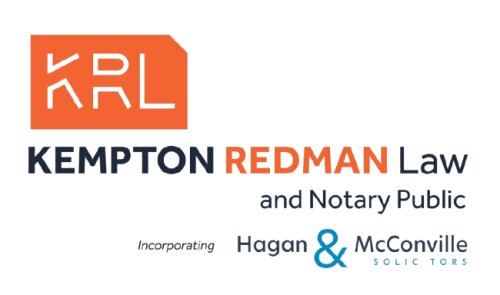Best Inheritance Law Lawyers in United Kingdom
Share your needs with us, get contacted by law firms.
Free. Takes 2 min.
Or refine your search by selecting a city:
List of the best lawyers in United Kingdom
1. About Inheritance Law in United Kingdom
Inheritance law in the United Kingdom governs how a deceased person’s assets are distributed. It covers wills, intestacy rules, probate, and the duties of executors or administrators. It also includes how trusts within estates are managed and how taxes such as Inheritance Tax are applied.
England and Wales share most rules, with a largely harmonised framework. Scotland and Northern Ireland have distinct legal systems for succession and probate. When a will exists, it sets out who inherits and who administers the estate. When there is no will, intestacy rules determine the distribution according to statutory provisions.
Key concepts in practice include probate or letters of administration, valuing the estate, paying debts and taxes, and then distributing assets to beneficiaries. Real property, bank accounts, investments, and shares may all be involved, possibly across jurisdictions or with overseas assets. A lawyer can help navigate complex situations such as trusts, cross-border assets, or disputes about a will's validity.
For residents in the United Kingdom, professional guidance from a solicitor or probate specialist can help ensure compliance with formal requirements, protect beneficiaries, and reduce the risk of delays or disputes. Understanding the basics early on can prevent costly errors later.
Probate can take several months to a year in many cases, depending on complexity and the accuracy of paperwork. Source: GOV.UK guidance on wills, probate and inheritance.
For quick reference, the government provides practical information on wills, probate and inheritance at GOV.UK and related official resources. These pages explain the steps from creating a will to applying for probate and handling Inheritance Tax where applicable. GOV.UK - Wills, probate and inheritance.
2. Why You May Need a Lawyer
Estate matters often involve technical rules and time-critical deadlines. A solicitor or probate specialist can help you avoid delays, challenge or defend a will, and ensure tax reliefs are correctly claimed. Below are real-world scenarios where legal advice is essential.
- A spouse discovers a will that appears to disinherit them or significantly reduce their share. A lawyer can evaluate claims under the Inheritance Act and ensure the will complies with formal requirements.
- An estate includes a family business, farmland, or shares in a company with overseas assets. A solicitor can coordinate cross-border probate and advise on reliefs such as Business Property Relief or Agricultural Relief where applicable.
- The estate has trusts for minors or vulnerable beneficiaries created by the will. Legal counsel is needed to interpret trust provisions and manage distributions while protecting beneficiaries.
- There is no valid will, or the will is disputed for lack of capacity or undue influence. A lawyer can assess validity, guide an intestacy claim, and handle any court proceedings.
- There are potential Inheritance Tax issues, such as large estates or complex transfers between spouses. A solicitor can plan to optimise reliefs and deadlines for an IHT return.
- Executors or administrators struggle with debts, creditor claims, or missing executors. A lawyer can help obtain the grant of probate and manage the administration efficiently.
3. Local Laws Overview
The following statutes form the backbone of modern UK inheritance law. They establish who may administer an estate, how assets are distributed, and how taxes apply.
- Wills Act 1837 - establishes formal requirements for a valid will, including writing, signature, and witnesses.
- Administration of Estates Act 1925 - governs administration of estates when there is no will or when a will requires administration by an administrator or executor.
- Inheritance Tax Act 1984 - sets the framework for Inheritance Tax, including nil-rate bands, rates, and reliefs available on transfer of assets on death.
- Inheritance (Provision for Family and Dependants) Act 1975 - allows dependants and certain family members to claim reasonable provision from an estate if a will is inadequate or non-existent.
Recent changes in policy and practice focus on alignment of reliefs and allowances, and on ensuring transparency in the probate process. For example, the nil-rate band and residence nil-rate band influence IHT planning, and are subject to annual review in the Finance Act process.
Current IHT thresholds include a nil-rate band of £325,000 and a residence nil-rate band up to £175,000, with some conditions and exemptions. Source: GOV.UK and HMRC guidance.
Notes on jurisdiction: England and Wales follow a common framework, while Scotland and Northern Ireland apply their own succession laws. When assets cross borders, multi-jurisdictional issues can arise and specialist advice is essential. For authoritative guidance, see GOV.UK and HMCTS resources linked below.
Useful government resources include GOV.UK pages on wills and probate and HMRC guidance on inheritance tax. These sources provide official explanations of processes, thresholds, and reliefs that affect most estates. GOV.UK - Inheritance Tax • GOV.UK - Wills, probate and inheritance.
4. Frequently Asked Questions
What is probate and why do I need it?
Probate is the legal process to confirm a will and appoint an executor to administer the estate. It enables the lawful transfer of assets to beneficiaries and payment of debts and taxes.
How do I apply for a grant of probate in England and Wales?
Apply online or via paper forms to the Probate Registry. You will provide the will, death certificate, and asset details, plus the executor’s information.
What is intestacy and how are assets distributed?
If there is no valid will, intestacy rules apply. The surviving spouse or civil partner, children, and other relatives may share the estate according to statutory formulas.
How much does it cost to hire a solicitor for probate?
Costs vary by case complexity and region. Some solicitors offer fixed fees for straightforward matters, while more complex cases bill hourly.
How long does probate typically take?
Timelines vary; simple estates may complete in 6-9 months, while complex estates can take over a year, especially with disputes or overseas assets.
Do I need a solicitor to draft a will or handle probate?
Not always, but professional help reduces mistakes and delays, and is recommended for complex estates or if disputes are likely.
What is the Inheritance Tax threshold now?
The nil-rate band for IHT is currently £325,000, with the potential for a residence nil-rate band in some cases. Thresholds are subject to annual updates.
Is a will valid if signed by witnesses?
A valid will must be in writing, signed by the testator, and witnessed by at least two independent witnesses in most cases.
Can I contest a will under the Inheritance Act 1975?
Yes, dependants can apply for reasonable provision if the will’s provisions are deemed inadequate, taking into account needs and contributions.
Do I need a solicitor if the estate is simple?
A solicitor is still useful to ensure proper formatting, avoid mistakes, and confirm tax implications even in simple estates.
What is the difference between an executor and an administrator?
An executor executes a will as named by the testator, while an administrator handles an estate when there is no valid will.
5. Additional Resources
- GOV.UK - Wills, probate and inheritance - Official guidance on creating a will, applying for probate, and dealing with inheritance issues. Visit GOV.UK
- HM Courts & Tribunals Service (HMCTS) - Probate Registry and the process for obtaining probate or letters of administration. Visit HMCTS
- HM Revenue & Customs (HMRC) - Inheritance Tax - Guidance on IHT thresholds, reliefs, and filing requirements. Visit HMRC IHT
6. Next Steps
- Identify whether a will exists and locate the executor or administrator. Do this within 1-2 weeks of death.
- Gather key documents, including the death certificate, will (if any), and asset information. Complete within 2-4 weeks.
- Decide whether you need a solicitor or probate specialist based on complexity. Contact 2-3 local firms for quotes within 1-2 weeks.
- Meet with a solicitor to assess the case, explain the process, and obtain an engagement letter. Schedule within 1-2 weeks after initial contact.
- Commence probate or administration by submitting the required forms and documents. Expect initial processing to take several weeks to months.
- Value the estate, settle debts and pay Inheritance Tax if due. Coordinate with HMRC and creditors during the 1-6 month window.
- Distribute assets to beneficiaries according to the will or intestacy rules. Complete the final distribution once taxes and debts are settled, typically within 6-12 months after probate begins.
Lawzana helps you find the best lawyers and law firms in United Kingdom through a curated and pre-screened list of qualified legal professionals. Our platform offers rankings and detailed profiles of attorneys and law firms, allowing you to compare based on practice areas, including Inheritance Law, experience, and client feedback.
Each profile includes a description of the firm's areas of practice, client reviews, team members and partners, year of establishment, spoken languages, office locations, contact information, social media presence, and any published articles or resources. Most firms on our platform speak English and are experienced in both local and international legal matters.
Get a quote from top-rated law firms in United Kingdom — quickly, securely, and without unnecessary hassle.
Disclaimer:
The information provided on this page is for general informational purposes only and does not constitute legal advice. While we strive to ensure the accuracy and relevance of the content, legal information may change over time, and interpretations of the law can vary. You should always consult with a qualified legal professional for advice specific to your situation.
We disclaim all liability for actions taken or not taken based on the content of this page. If you believe any information is incorrect or outdated, please contact us, and we will review and update it where appropriate.
Browse inheritance law law firms by city in United Kingdom
Refine your search by selecting a city.















